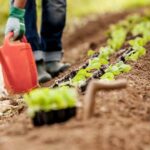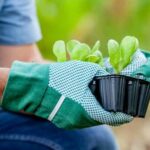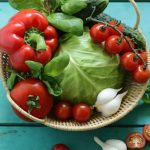Are you interested in starting a vegetable garden in Shreveport, Louisiana? The climate and soil conditions in this region provide a unique opportunity for growing a wide variety of vegetables.
Vegetable gardening in Shreveport is not only a rewarding hobby but also contributes to sustainable living and healthy eating. In this comprehensive guide, we will explore the best vegetables to grow, tips for preparing your garden, seasonal planting guides, pest and disease management, maximizing yields, and community resources for vegetable gardeners in Shreveport, Louisiana.
Shreveport, Louisiana experiences a humid subtropical climate with hot summers and mild winters. The rich alluvial soil along the Red River valley provides excellent conditions for growing vegetables. With increasing interest in organic and locally grown produce, vegetable gardening in Shreveport has gained popularity as an environmentally friendly and cost-effective way of obtaining fresh produce.
Whether you are an experienced gardener or just starting out, learning about the best vegetables to grow in Shreveport can help you plan your garden effectively. From tomatoes and peppers to leafy greens and root vegetables, there are numerous options that thrive in this particular climate. We will discuss each vegetable’s ideal planting times and care tips to help you achieve a successful harvest. Stay tuned to discover how to prepare your garden for optimal growth and bountiful yields.
Best Vegetables to Grow in Shreveport, Louisiana
Tomatoes
Tomatoes are a staple in vegetable gardening in Shreveport, Louisiana due to their versatility and ability to thrive in the region’s climate. With warm temperatures and plenty of sunlight, tomatoes can be successfully grown in Shreveport. Planting tomatoes in mid to late March is recommended, as they require at least five hours of direct sunlight each day. It is important to provide support for the plants, such as cages or stakes, to help them grow upright and prevent rotting.
Peppers
Another excellent vegetable to grow in Shreveport is peppers. Whether it’s bell peppers, jalapenos, or banana peppers, these plants love the heat and sunshine that is abundant in the region. Peppers should be planted after the last frost date, typically around early April in Shreveport. They also thrive in well-drained soil and benefit from mulching to retain moisture.
Squash
For those looking to grow summer squash or zucchini, Shreveport’s warm climate provides the perfect conditions for a successful harvest. These vegetables can be planted directly into the soil once all danger of frost has passed, usually around mid-April. As with many vegetables grown in Shreveport, adequate sunlight and well-draining soil are essential for healthy squash plants.
By choosing these vegetables to grow in their gardens, residents of Shreveport can enjoy fresh produce while embracing the joy of vegetable gardening.sharpening their growing skills through hands-on experience with
Preparing Your Garden in Shreveport, Louisiana
When it comes to vegetable gardening in Shreveport, Louisiana, preparing your garden properly is essential for a successful harvest. The region’s climate and soil conditions may present some challenges, but with the right techniques and tools, you can create a thriving vegetable garden in your own backyard. Here are some tips for preparing your garden in Shreveport for vegetable gardening:
1. Test and Amend the Soil: Before planting any vegetables, it’s crucial to test the soil in your garden. Shreveport’s soil tends to be acidic, so adding lime can help to balance the pH levels. Incorporating organic matter such as compost or well-rotted manure can also improve soil structure and fertility.
2. Choose the Right Tools and Equipment: Investing in quality gardening tools is essential for successful vegetable gardening in Shreveport, Louisiana. A sturdy shovel, rake, hoe, and trowel are basics that every gardener should have. Additionally, consider a soaker hose or drip irrigation system to ensure that your vegetable plants receive consistent water throughout the growing season.
3. Consider Raised Beds or Containers: If you’re dealing with particularly challenging soil conditions or limited space, raised beds or containers can be a great option for vegetable gardening in Shreveport. These methods allow you to have more control over the soil quality and drainage while also providing an opportunity to introduce new soil free from potential contaminants.
By following these tips and properly preparing your garden in Shreveport for vegetable gardening, you’ll be setting yourself up for a bountiful harvest of fresh produce. With some careful planning and maintenance, you can enjoy the satisfaction of growing your own vegetables right in your own backyard despite any challenges that may come with vegetable gardening in Shreveport, Louisiana.
Seasonal Planting Guide for Shreveport, Louisiana
When it comes to vegetable gardening in Shreveport, Louisiana, understanding the best times to plant different vegetables is crucial for a successful harvest. The climate in Shreveport is classified as humid subtropical, with hot and humid summers and mild winters. The region also experiences a significant amount of rainfall throughout the year. These conditions create a unique environment for growing vegetables, and knowing the optimal planting times can greatly improve your garden’s productivity.
In the spring, Shreveport gardeners can start planting cool-season crops such as lettuce, spinach, kale, and broccoli as early as February or March. These vegetables thrive in the milder temperatures and can withstand light frosts. As temperatures warm up in late spring and early summer, it’s time to plant warm-season crops like tomatoes, peppers, cucumbers, and squash. These heat-loving vegetables require consistent warmth to grow successfully.
During the fall season, Shreveport gardeners can take advantage of the milder temperatures by planting another round of cool-season crops such as carrots, radishes, beets, and Swiss chard. These vegetables can be planted from late summer through early fall to ensure a bountiful harvest before winter arrives. Understanding these seasonal planting schedules will help vegetable gardeners in Shreveport make the most of their growing seasons while taking advantage of the region’s climate.
| Vegetable | Optimal Planting Time |
|---|---|
| Lettuce | February – March; September – October |
| Tomatoes | April – May |
| Cucumbers | April – May |
Pest and Disease Management in Shreveport, Louisiana
When engaging in vegetable gardening in Shreveport, Louisiana, it is important to be aware of the common pests and diseases that can affect your garden. The subtropical climate of Shreveport creates ideal conditions for various pests and diseases to thrive, making it crucial for gardeners to be proactive in managing these challenges. Some common pests that vegetable gardeners may encounter in Shreveport include aphids, caterpillars, and spider mites. These pests can cause significant damage to crops if not properly controlled.
In addition to pests, certain diseases can also pose a threat to vegetable gardens in Shreveport. Fungal diseases such as powdery mildew and blight are prevalent in the humid climate of the region. Proper disease management practices are essential for preventing the spread of these issues and protecting the health of your plants. Utilizing organic and natural methods for pest and disease control is particularly important for those practicing sustainable and environmentally-friendly gardening methods.
One effective approach to pest and disease management in vegetable gardening is implementing companion planting and crop rotation strategies. By carefully selecting plant combinations that naturally repel or confuse pests, gardeners can reduce the likelihood of infestations. Additionally, rotating crops annually helps prevent the build-up of soil-borne diseases that can impact plant health. These integrated pest management techniques are beneficial for maintaining a healthy and productive vegetable garden in Shreveport.
| Pest/Disease | Management Method |
|---|---|
| Aphids | Introduce ladybugs or lacewings as natural predators |
| Powdery Mildew | Prune affected leaves and improve air circulation around plants |
| Crop Rotation | Rotate planting areas annually to minimize disease build-up |
Tips for Maximizing Yields in Shreveport, Louisiana
When it comes to vegetable gardening in Shreveport, Louisiana, maximizing yields can be a top priority for many gardeners. The unique climate and soil conditions in the region present both opportunities and challenges for growing vegetables. Fortunately, there are several strategies that gardeners can employ to optimize their harvests and increase the productivity of their gardens.
Strategies for Increasing Yields
One of the most effective ways to maximize yields in Shreveport is to practice companion planting. This method involves growing different types of plants together in a way that benefits each other. For example, planting basil near tomatoes can improve the flavor and growth of both plants. Additionally, rotating crops from season to season can help prevent soil depletion and reduce the risk of pests and diseases, ultimately leading to higher yields.
Soil Enrichment and Nutrient Management
In Shreveport’s unique soil conditions, it is essential to enrich the soil with organic matter such as compost or aged manure. This helps improve soil structure, moisture retention, and nutrient levels, all of which contribute to healthier plants and better yields. Gardeners should also consider using natural fertilizers and amendments to ensure that their vegetables have access to essential nutrients throughout the growing season.
Optimizing Watering Practices
Proper watering is crucial for maximizing yields in vegetable gardens in Shreveport. It’s important to water deeply and less frequently, allowing the roots of the plants to reach deep into the soil for moisture. Using mulch around your plants can also help retain moisture levels in the soil and reduce water evaporation during hot summer days.
By employing these strategies and techniques for maximizing yields in vegetable gardening in Shreveport, Louisiana, gardeners can ensure a bountiful harvest from their efforts while enjoying all the benefits that come with cultivating homegrown produce.
Community Resources for Vegetable Gardeners in Shreveport, Louisiana
When it comes to vegetable gardening in Shreveport, Louisiana, there are several community resources available to support and educate gardeners. Whether you’re a beginner looking for guidance or an experienced gardener wanting to connect with others, these resources can provide valuable assistance and networking opportunities.
Here are some of the top community resources for vegetable gardening in Shreveport:
1. Local Gardening Clubs:
Joining a gardening club is a great way to meet fellow enthusiasts, exchange tips and ideas, and participate in group activities such as plant swaps or garden tours. In Shreveport, there are several gardening clubs that welcome vegetable gardeners of all experience levels. Some clubs may also offer workshops or guest speakers on topics related to vegetable gardening.
2. Community Gardens:
For those who may not have access to their own garden space, community gardens provide a wonderful opportunity to grow vegetables alongside other local gardeners. These shared spaces often offer plots that can be rented for a small fee, allowing individuals to cultivate their own crops while enjoying the camaraderie of fellow gardeners.
3. Farmer’s Markets:
Visiting farmer’s markets is not only a great way to source fresh produce but can also be an opportunity to connect with local growers and gain insights into what grows well in the area. Many farmers at these markets are happy to share their knowledge and experiences with fellow vegetable gardeners, making it a valuable resource for those looking to learn more about successful vegetable gardening in Shreveport.
By taking advantage of these community resources for vegetable gardening in Shreveport, aspiring and seasoned gardeners alike can enhance their skills, expand their networks, and ultimately contribute to the thriving culture of homegrown produce in the region.
Conclusion
In conclusion, vegetable gardening in Shreveport, Louisiana offers numerous benefits for individuals and the community as a whole. The city’s climate and soil conditions provide an ideal environment for growing a wide variety of vegetables, making it a rewarding and sustainable activity for residents. By embracing vegetable gardening, individuals can enjoy the satisfaction of growing their own fresh produce, while also contributing to a healthier and more environmentally friendly lifestyle.
The unique climate of Shreveport allows for the cultivation of a diverse range of vegetables throughout the year. By following the seasonal planting guide and implementing proper pest and disease management strategies, gardeners can maximize their yields and enjoy an abundant harvest. Additionally, the availability of community resources such as local gardening clubs, community gardens, and farmers’ markets provides opportunities for networking and learning from other vegetable gardeners in the area.
In essence, vegetable gardening in Shreveport presents a wonderful opportunity for individuals to connect with nature, promote sustainable living practices, and contribute to the local food movement. As such, it is our hope that this article has encouraged readers to either start or continue their own vegetable gardens in Shreveport. Embracing vegetable gardening not only benefits personal health but also fosters a sense of community connection and environmental stewardship within the city.
Frequently Asked Questions
What Are the Best Garden Vegetables for Louisiana?
The best garden vegetables for Louisiana include okra, tomatoes, bell peppers, cucumbers, squash, and sweet potatoes. These vegetables thrive in the warm and humid climate of the state.
When Should I Start Planting My Garden in Louisiana?
In Louisiana, it’s best to start planting your garden in late February to early March for cool-season crops like lettuce, spinach, and kale. For warm-season crops like tomatoes and peppers, wait until April or May when the soil has warmed up.
When Should I Start a Vegetable Garden?
The ideal time to start a vegetable garden depends on your location and the climate. Generally, cool-season crops can be started in early spring, while warm-season crops should be planted after the last frost date in your area.
It’s important to consider factors like soil temperature and frost risk when deciding on the best time to start a vegetable garden.

If you’re looking to get into vegetable gardening, or are just looking for some tips on how to make your current garden better, then you’ve come to the right place! My name is Ethel and I have been gardening for years. In this blog, I’m going to share with you some of my best tips on how to create a successful vegetable garden.





